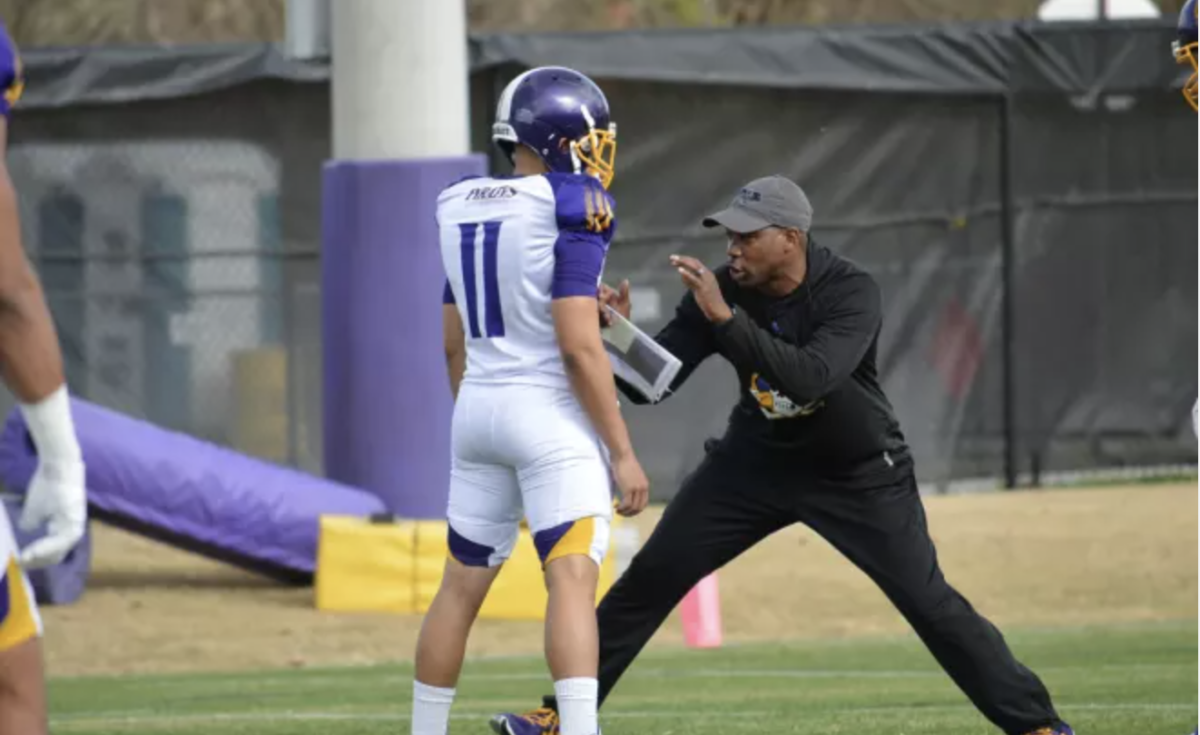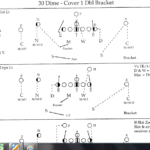As players in the secondary, our first pursuit is playing time and the starting position. To do this, we must earn favor with our coaches. By favor, I don’t mean becoming his pet, but that might be what happens if you follow the steps I will lay out for you in this article.
As with any meaningful relationship in your life, trust is at the top. You wouldn’t trust your girlfriend if she never answered your calls when she went out with her friends. You will not trust your dog if every time you let him outside, he ran down the street. With this in mind, for you to get playing time or a starting position, your coach will need to trust you. Here are four ways you can build trust with your DB coach.
Pay attention in meetings
This one seems simple but can be very hard to do. We all know that meetings can get boring and can seem to repeat the same things over and over. However, this does not relieve you from the responsibility of paying attention in those meetings. A lot of times, those things being repeated over and over have been ignored by you over and over. When your coach has repeated things many times, and you repeatedly get them wrong on the field, he has little reason to play you in the game to see if you will get it right then.
You should enter every meeting with a goal in mind. That goal should focus on learning something new. Or, at the very least, gaining a new understanding of something you may have thought you knew. This requires intentional action and it would be best to write it down. So if you keep a notebook, and you should, write at the top of the page where you take your notes what the goal should be. So for instance, if you are a cornerback and the meeting is discussing quarters coverage, you could put in the goal for the meeting that you want to know what the linebacker’s responsibility is in quarters coverage. Doing this will keep you attentive in meetings and trust me, your coach will notice. Add to that, when you ask questions in the meeting, it adds to the fact that you are indeed paying attention.
Study film
If you have spent any amount of time on this blog reading articles, you know that I am big on this. Aside from the personal benefits you will receive as a player by watching film, doing this will build trust with your coach. Your coach knows that success for his players on the field starts with knowing what his opponent is trying to do to him. If you show interest in this very key element of your success, your coach will feel comfortable that you are a person who will have success. Your success means the whole unit’s success and in turn means the coach’s success. If your actions will bring the Coach success then he will have no choice but to trust you. Make it a point to study game film and as a side note, ask questions about things you’ve seen on film or even point them out to your coach. This will definitely let him know that you are studying the game.
Look at him when he is teaching.
In my book, 101 DB Tips, I speak a little more in-depth on this. Looking at your coach while he is giving instruction is highly underrated. The truth of the matter is that you listen with your eyes. I mean what I just said. It is very difficult to divide your senses. Attempting to look at one thing while listening intently to another is difficult. I am not saying that it’s impossible, but I am saying that it is more likely than not that you will miss important information.
I can assure you that no coach likes speaking to a player or a group of players and having them look elsewhere. It is an indication to the coach that what is being said to the player is not all that important to him. If what the coach is saying is not that important to the player then on game day the player’s playing time won’t be that important to the coach. The only time it benefits you to not look at the coach while he is talking is in a game when he is yelling something out to you from the sidelines as the ball is getting ready to be snapped. Every time outside of that, give your eyes to your coach when he is speaking to you. It will go a long way in him trusting that what he said to you was understood.
Be where you are supposed to be
This one is obvious but is not always achieved. The truth of the matter is that if you do the first three things that I mentioned in this article, you will most likely achieve this fourth one. However, do not take this one for granted.
Being where you are supposed to be does not just involve on the practice or game field. If you are supposed to be in the weight room at a certain time, then be in the weight room at that time. If you are supposed to be in class, be in class. If you are supposed to be in study hall, be in study hall.
If your girlfriend told you she was going to your grandmother‘s house and instead, she ended up at a concert, I am certain that your trust in her would diminish. Just like a safety is supposed to be in the post in cover three, so too should you be in the weight room, on the field, or in the classroom at the times you were instructed to be. Whether you know this or not, your coach is nervous on game day. It takes a lot for him to believe in what another person is going to do out on the field. You can make him believe by following the steps and doing the things I have outlined in this article. As I always say, consistency breeds results. It turns out that it also builds trust.
Chad Wilson is the owner of All Eyes DB Camp and author of "101 DB Tips". He played college football at the University of Miami and briefly in the NFL for the Seattle Seahawks. Over his 15 year high school football coaching career, he tutored over a dozen Division I defensive backs and as a trainer has worked with NFL All Pros, first round draft picks, college football All Americans and Top 10 ranked high school football prospects.









